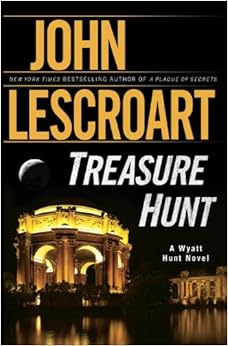
I
listened to a review on NPR of Kate Atkinson’s newest novel, A God in Ruins. The glowing review
described Atkinson as being capable of inspiring tears on one page and laughter
on another. That is exactly the kind of writing I look for.
I’d
never read Atkinson before, so I thought I’d give her a try. And when I found
out she wrote murder mysteries, which I especially like, I decided to try the
first of her Jackson Brodie series.
You
know how disappointed you are when you eat meatloaf at a restaurant and it’s
not as good as the meatloaf you make yourself at home? That’s how I felt about
Kate Atkinson’s Case Histories.
When
I started reading it, I realized I had seen it. On PBS’s Masterpiece Mysteries. And I enjoyed that production. I’m one of those
people who say “the book’s better, but not in this case. The BBC production is
much better. And not just because it’s set in Edinburgh instead of Cambridge.
Atkinson's skillful use of the English language is not enough to cover the mishmash plot.
Jackson
Brodie, the main character has personal problems – a new divorce, a daughter he
loves, and a wife he still doesn’t understand. He and his life are much more
interesting than his Case Histories.
The
construction of the novel was a bit disconcerting for me. The first case is the
missing child case and its six significant characters. The second case is a
seemingly random knifing of a fat lawyer’s daughter and his partner. In the
third case Ms. Atkinson gives us a really great ax-murder. Each is presented as
unrelated.
The
only interesting constants are a crazy, old cat lady and Brodie’s sensible
child.
The
novel is predictable. And not just because I’d seen the TV production. The only
real surprise was in the Michelle/Shirley story. And it was so out of left
field as to be unbelievable.
Atkinson’s
machinations to connect the stories are so obvious as to be irritating. And
where we have been trained since Holmes and Christie that there are no
coincidences, Atkinson makes such liberal use of them as to “gag a maggot” – to
resurrect an admittedly disgusting phrase from my youth.

Immediately
following the saccharine ending of Case
Histories, I read John Lescroart’s Treasure
Hunt. Lescroart does a yeoman job of giving us a mystery complete with a
gathering of the suspects ala Agatha Christie. A gathering that had me holding
my breath and laughing out loud.
He
did indulge his writer-self following the exposure of the baddie. Which I
enjoyed thoroughly. And, as always, he turned me on to other books I must read.
In his Acknowledgements he names The
Making of a Chef by Michael Ruhlman. Years ago I read that his character
Abe Glitsky reads Patrick O’Brian’s Aubrey-Maturin series, the first of which
is Master and Commander. I have
enjoyed reading O’Brian ever since.
I
have a tradition of reading at least two books by any one author before I
strike them off my reading list. Which I will do with Ms. Atkinson, but no more
of her mysteries for me. You don’t have to follow that tradition unless you’re
just hard up for something to read. If that is the case, I’d recommend the BBC
productions instead of the book and/or visiting your public library for an
unlimited banquet of good books.
I've never read any of Kate Atkinson's mysteries. Her "other" books are interesting, if a little weird. I liked Behind the Scenes at the Museum.
ReplyDeleteAnabel's Travel Blog
Adventures of a retired librarian
I'll give that one a try. Thanks for the input.
Delete